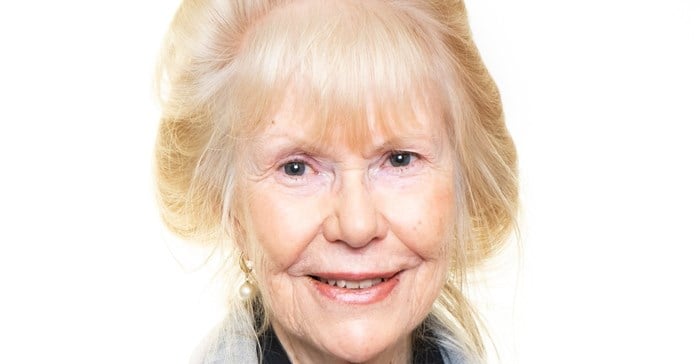
Top stories






More news














In this, the mining industry could play a leading role.
While the legal status of the 2018 mining charter is being resolved before the courts, mining could take the bull by the horns and embark on a pilot study to explore what the benefits of a shift to a new empowerment model would be.
For some years, we at the Institute of Race Relations (IRR) have been developing such a policy – called Economic Empowerment for the Disadvantaged (EED), which could make all the difference in the hard-pressed mining sector.
Empowerment obligations in mining are now in flux, for in March 2019 the Minerals Council South Africa challenged the validity of the 2018 Mining Charter. The council is particularly concerned about increased BEE ownership obligations (up from 26% to 30%) on the renewal or transfer of existing mining rights. It also objects to the charter’s unduly onerous preferential procurement obligations. (We understand the appeal by the Department of Mineral Resources is to be heard in the first half of 2020.)
At the same time, many mining companies are struggling to survive under the impact of electricity supply constraints, rising input costs, largely stagnant resource prices, and the ever escalating burden of ever more unrealistic BEE requirements.
In the wider economy, there is growing agreement that a new approach to empowerment is needed to enable what Minister of Public Enterprises Pravin Gordhan described in May 2019 as ‘more inclusive growth’ that benefits the many rather than the few.
Firstly, EED would encourage and reward entrepreneurship by giving businesses (voluntary) points for all jobs and salaries provided, as well as all contributions made to capital investment, tax revenues, export earnings, R&D spending, and successful innovation. These are by far the most important contributions the private sector can make to the upward mobility of all South Africans – but the BEE scorecard ignores them, whereas EED would make them a key focus.
Second, a new EED system would reach right down to the grassroots by equipping the poor with the sound schooling, housing, and healthcare they need to help them get ahead. Some R620bn has been budgeted for schooling, healthcare, and housing/community development in the 2019/20 financial year. But the state’s centralised and top-down delivery system is so mismanaged and inefficient that outcomes are generally extraordinarily poor.
EED recognises that current budgets, already high compared to many other countries, cannot be increased. The key need is rather to get far more bang for every buck. This can be done by redirecting much of the revenue now being so badly spent into tax-funded vouchers for schooling, housing, and healthcare for the poor. Low-income households empowered in this way would have real choices available to them. Schools and other entities would also have to compete for their custom, helping to keep costs down and push quality up.
Tax-funded vouchers for schooling, housing, and healthcare are a crucial element in the EED strategy and would extend its reach to the most marginalised. Business could then contribute to their empowerment – and earn additional voluntary EED points – by helping to improve the quality of provision in these three spheres, or by topping up the vouchers of the poorest, for example.
Third, EED (like the social grants system) would rely on a means test to determine disadvantage and stop using race as a proxy for this. EED benefits would go overwhelmingly to black South Africans. Data from Statistics South Africa confirms this, for the disadvantaged whites who might gain from EED make up only 0.16% of those living in poverty.
We believe there is an important opportunity for the mining industry to embark on a pilot study of how an alternative EED strategy could work in this sector.
The Minerals Council could easily develop a voluntary EED charter for its members. This would allow mining companies to total up the EED points they would be able to earn under an EED system for their vital economic contributions, as well as for their inputs in labour, environmental, and community spheres.
As part of this pilot study, the likely impact of introducing tax-funded vouchers for schooling, housing, and healthcare in a particular mine community could also be modelled. Mining companies in that area could then outline the further contributions they would be able to make to the poorest under such a system – and how many extra EED points they could notch up in this way.
The pilot study could incorporate opinion polls in one or more mining communities to test people’s views on the voucher option. Such polls would supplement the IRR field surveys, which have already found high (and accelerating) support for the voucher system among the general population.
In December 2018, 93% of black respondents in an IRR field survey (up from 86% in 2016) supported the idea of education vouchers. Black support for healthcare vouchers came in at 91% (up from 83% in 2016), while support for housing vouchers was strong as well, at 83% in both years. In addition, 85% of black respondents (up from 74% in 2016) said these vouchers would be more effective than BEE in helping them to get ahead.
BEE has helped only a relatively small elite, while greatly harming the poor. Far from helping to ‘unleash the full potential of all South Africans to contribute to wealth creation’ – as the ANC promised some 25 years ago – current empowerment policies have added to inequality, promoted crony capitalism, and encouraged corruption and an entitlement mentality. They have also become a leg-iron on the economy and a major bar to the investment, growth and jobs the poor need most of all.